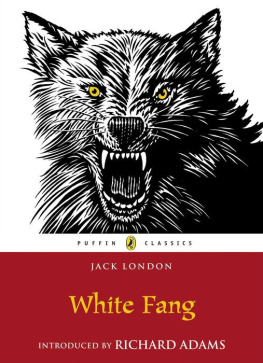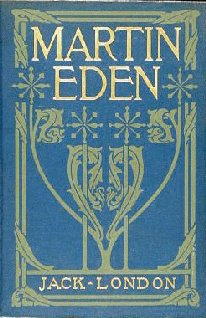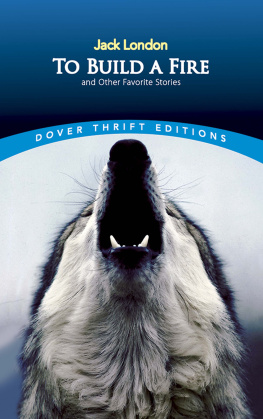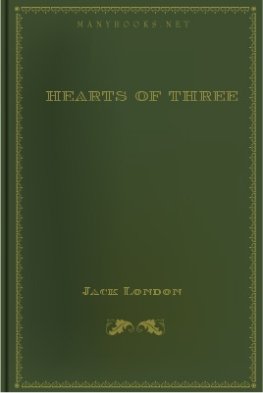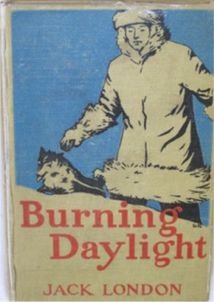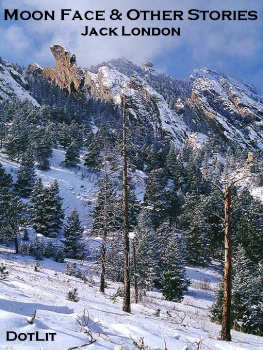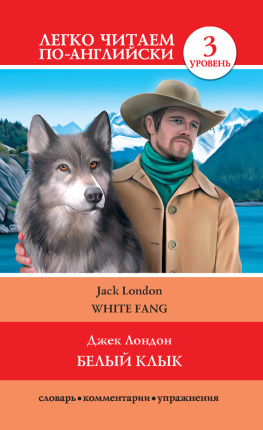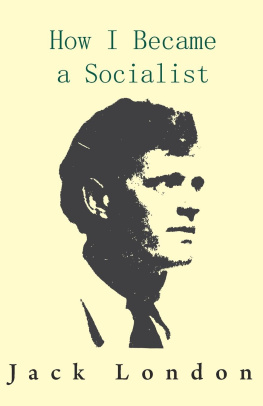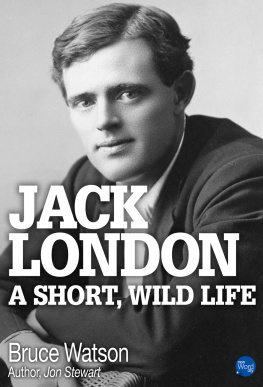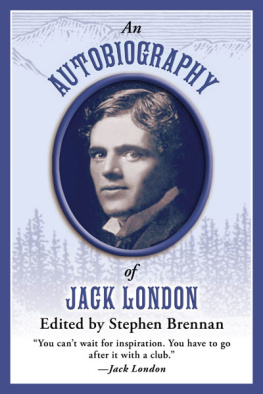Jack London - White Fang
Here you can read online Jack London - White Fang full text of the book (entire story) in english for free. Download pdf and epub, get meaning, cover and reviews about this ebook. year: 2008, publisher: Penguin UK, genre: Detective and thriller. Description of the work, (preface) as well as reviews are available. Best literature library LitArk.com created for fans of good reading and offers a wide selection of genres:
Romance novel
Science fiction
Adventure
Detective
Science
History
Home and family
Prose
Art
Politics
Computer
Non-fiction
Religion
Business
Children
Humor
Choose a favorite category and find really read worthwhile books. Enjoy immersion in the world of imagination, feel the emotions of the characters or learn something new for yourself, make an fascinating discovery.
- Book:White Fang
- Author:
- Publisher:Penguin UK
- Genre:
- Year:2008
- Rating:3 / 5
- Favourites:Add to favourites
- Your mark:
- 60
- 1
- 2
- 3
- 4
- 5
White Fang: summary, description and annotation
We offer to read an annotation, description, summary or preface (depends on what the author of the book "White Fang" wrote himself). If you haven't found the necessary information about the book — write in the comments, we will try to find it.
White Fang — read online for free the complete book (whole text) full work
Below is the text of the book, divided by pages. System saving the place of the last page read, allows you to conveniently read the book "White Fang" online for free, without having to search again every time where you left off. Put a bookmark, and you can go to the page where you finished reading at any time.
Font size:
Interval:
Bookmark:

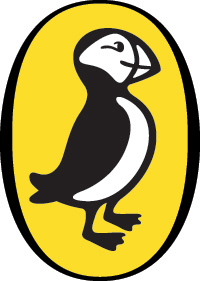
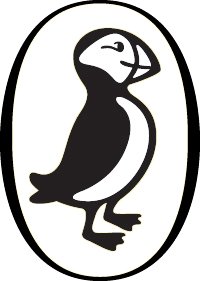
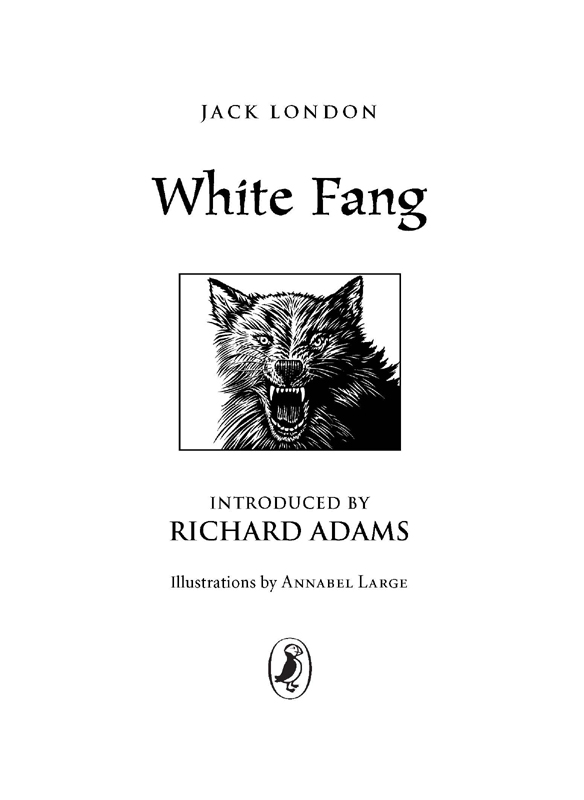
There were two kinds of life his own kind and the other kind. His own kind included his mother and himself. The other kind included all live things that moved. But the other kind was divided. One portion was what his own kind killed and ate. This portion was composed of the non-killers and the small killers. The other portion killed and ate his own kind, or was killed and eaten by his own kind. And out of this classification arose the law. The aim of life was meat. Life itself was meat. Life lived on life. There were the eaters and the eaten. The law was: EAT, OR BE EATEN.
Before you were ten years old, reader, in all likelihood you had already taken on board Peter Rabbit, Winnie-the-Pooh, Mole and Water Rat. What was there to be found next? Perhaps, if you were lucky, the fascinating stories told by Ernest Thompson Seton about real, live animals many of them written from his personal experience. Yet foremost among these was, and remains, the great animal classic, Jack Londons White Fang.
What is it about? Its about wolves. White Fang is a young wolf, his mother one of the most fearsome hunters in the wolf-pack to which she belongs. But first the reader is driven, as though by snowstorm and icy blast, into one of the harshest and most desolate regions on earth, a frozen wilderness, fatal to every man who has ever ventured there; a land dominated by a single rule: Either kill for survival or be killed and eaten yourself.
Here, our first encounter is with a pair of human wanderers, Bill and Henry, starving and desperate to get back to civilization (if so it can be called) with their bare lives. Surrounded by an unending vastness, what is to become of them? Fear.
Next comes the wolf-pack, as starved as the humans whom they are hunting. Among them is the she-wolf who mates with old One Eye and so becomes White Fangs mother, giving birth in a lonely, remote cave. Thus his story is begun.
Even though it ends with White Fang more or less adapted to life among humans, there remains, unforgettable in the readers mind almost as if it were an autonomous character the killer, the murderous landscape of the frozen North.
But you havent told the story, I hear you cry. No, and you will do much better to read it for yourself, I reply. White Fang is an animal classic more than worthy to stand beside or even above Ernest Thompson Setons wonderful wild animal stories, such as Raggylug, the Cottontail Rabbit, or Krag, the Kootenay Ram. White Fang is over one hundred years old. Foremost among the numerous animal adventures which have followed in his train, he and his world remain supreme, perhaps the greatest of animal stories ever written.
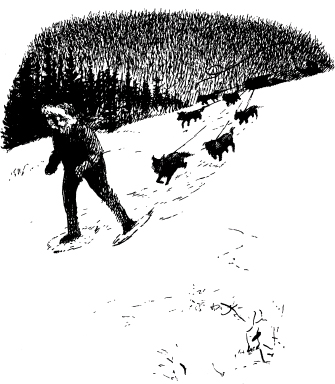
Dark spruce forest frowned on either side the frozen waterway. The trees had been stripped by a recent wind of their white covering of frost, and they seemed to lean toward each other, black and ominous, in the fading light. A vast silence reigned over the land. The land itself was a desolation, lifeless, without movement, so lone and cold that the spirit of it was not even that of sadness. There was a hint in it of laughter, but of a laughter more terrible than any sadness a laughter, that was mirthless as the smile of the sphinx, a laughter cold as the frost and partaking of the grimness of infallibility. It was the masterful and incommunicable wisdom of eternity laughing at the futility of life and the effort of life. It was the Wild the savage, frozen-hearted Northland Wild.
But there was life, abroad in the land and defiant. Down the frozen waterway toiled a string of wolfish dogs. Their bristly fur was rimed with frost. Their breath froze in the air as it left their mouths, spouting forth in spumes of vapour that settled upon the hair of their bodies and formed into crystals of frost. Leather harness was on the dogs, and leather traces attached them to a sled which dragged along behind. The sled was without runners. It was made of stout birch-bark, and its full surface rested on the snow. The front end of the sled was turned up, like a scroll, in order to force down and under the bore of soft snow that surged like a wave before it. On the sled, securely lashed, was a long and narrow oblong box. There were other things on the sled blankets, an axe, and a coffee-pot and frying-pan; but prominent, occupying most of the space, was the long and narrow oblong box.
In advance of the dogs, on wide snowshoes, toiled a man. At the rear of the sled toiled a second man. On the sled, in the box, lay a third man whose toil was over a man whom the Wild had conquered and beaten down until he would never move nor struggle again. It is not the way of the Wild to like movement. Life is an offence to it, for life is movement; and the Wild aims always to destroy movement. It freezes the water to prevent it running to the sea; it drives the sap out of the trees till they are frozen to their mighty hearts; and most ferociously and terribly of all does the Wild harry and crush into submission man man who is the most restless of life, ever in revolt against the dictum that all movement must in the end come to the cessation of movement.
But at front and rear, unawed and indomitable, toiled the two men who were not yet dead. Their bodies were covered with fur and soft tanned leather. Eyelashes and cheeks and lips were so coated with the crystals from their frozen breath that their faces were not discernible. This gave them the seeming of ghostly masques, undertakers in a spectral world at the funeral of some ghost. But under it all they were men, penetrating the land of desolation and mockery and silence, puny adventurers bent on colossal adventure, pitting themselves against the might of a world as remote and alien and pulseless as the abysses of space.
They travelled on without speech, saving their breath for the work of their bodies. On every side was the silence, pressing upon them with a tangible presence. It affected their minds as the many atmospheres of deep water affect the body of the diver. It crushed them with the weight of unending vastness and unalterable decree. It crushed them into the remotest recesses of their own minds, pressing out of them, like juices from the grape, all the false ardours and exaltations and undue self-values of the human soul, until they perceived themselves finite and small, specks and motes, moving with weak cunning and little wisdom amidst the play and inter-play of the great blind elements and forces.
An hour went by, and a second hour. The pale light of the short sunless day was beginning to fade, when a faint far cry arose on the still air. It soared upward with a swift rush, till it reached its topmost note, where it persisted, palpitant and tense, and then slowly died away. It might have been a lost soul wailing, had it not been invested with a certain sad fierceness and hungry eagerness. The front man turned his head until his eyes met the eyes of the man behind. And then, across the narrow oblong box, each nodded to the other.
Font size:
Interval:
Bookmark:
Similar books «White Fang»
Look at similar books to White Fang. We have selected literature similar in name and meaning in the hope of providing readers with more options to find new, interesting, not yet read works.
Discussion, reviews of the book White Fang and just readers' own opinions. Leave your comments, write what you think about the work, its meaning or the main characters. Specify what exactly you liked and what you didn't like, and why you think so.

